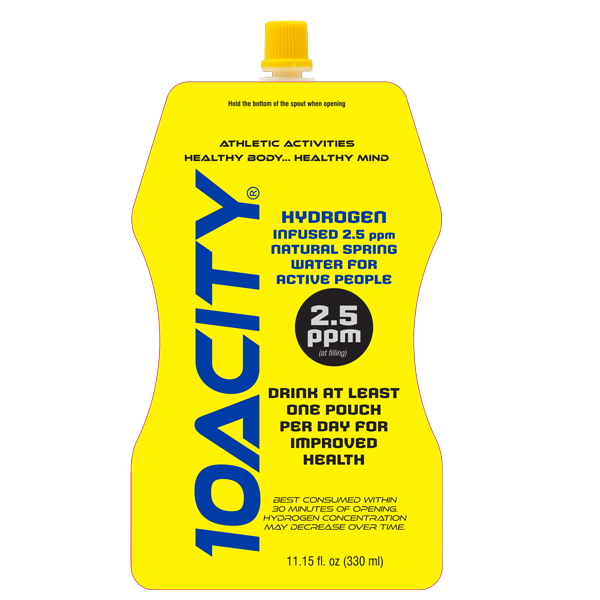1. Introduction to the Concept of Hydrogen Water
Hydrogen water has been gaining attention as a wellness trend due to its reported health benefits. It is regular water (H2O) that has additional hydrogen gas (H2) dissolved into it, and is claimed to offer antioxidant properties, reduce inflammation, and improve athletic performance among other benefits. While scientific research is still ongoing to fully substantiate these claims, many health enthusiasts have adopted hydrogen water into their daily habits. Before incorporating it into your routine, it’s essential to understand what hydrogen water is and why its intake needs to be appropriately measured.
2. The Potential Health Benefits of Hydrogen Water
2.1. Antioxidant and Anti-inflammatory Effects
how much hydrogen water should you drink a day? Consumers of hydrogen water often point to its strong antioxidant properties that may help neutralize free radicals in the body, potentially reducing oxidative stress and preventing related cellular damage. Oxidative stress is associated with a multitude of health issues, including aging and chronic diseases. Additionally, hydrogen water is suggested to have anti-inflammatory effects which could be beneficial for those with conditions like arthritis or metabolic syndrome.

2.2. Impact on Athletic Performance and Recovery
Athletes are interested in hydrogen water due to its reported benefits for improved performance and quicker recovery times. The science behind this suggests that the increased hydrogen content helps reduce lactic acid buildup during intense physical activity, potentially leading to enhanced endurance and less muscle fatigue post-exercise. Proper hydration, including the consumption of hydrogen water, might be significantly impactful for athletes looking to optimize their training outcomes.
2.3. General Well-being and Disease Prevention
Hydrogen water is also believed to contribute to general well-being, with some studies indicating its role in disease prevention and health maintenance. Its effects on improving metabolic syndrome parameters – such as cholesterol levels, glucose tolerance, and overall inflammation – present it as a promising agent against lifestyle-related diseases. Furthermore, its purported neuroprotective properties could be advantageous in maintaining cognitive health.
3. Determining the Right Amount of Hydrogen Water Intake
3.1. Analyzing the Scientific Evidence
To determine how much hydrogen water should you drink a day? it’s crucial to look at the scientific studies and clinical trials. The amount of hydrogen-saturated water used in studies varies, but it usually ranges from 0.5 to 2 liters per day. Since research on the ideal consumption is ongoing, and there is no establish Recommended Daily Allowance (RDA) for hydrogen water, the amount should be gauged based on current health status, lifestyle, and individual needs.
3.2. Personal Health Considerations and Goals
When incorporating hydrogen water into daily intake, individuals should consider their personal health objectives and existing conditions. Those seeking to manage chronic inflammation, for example, may benefit from regular amounts on the higher end of the spectrum, while someone using it for general wellness might require less. Consulting with healthcare professionals can provide guidance tailored to individual health scenarios.

3.3. Balancing with Regular Water Intake
While hydrogen water is being touted for its additional benefits, it should complement the daily consumption of regular water. The human body needs a certain amount of water to function properly, generally advised at around 2-3 liters per day depending on factors such as age, gender, climate, and physical activity. Hydrogen water can be a part of this hydration, but shouldn’t replace normal water intake entirely.
4. Practical Guidelines for Drinking Hydrogen Water
4.1. Starting with Moderate Amounts
For those new to hydrogen water, starting with a moderate amount, such as one glass per day (about 200-300 ml), could be a sensible approach. how much hydrogen water should you drink a day?This allows the body to adjust and can help identify any sensitivity or adverse reactions before gradually increasing the quantity if desired.
4.2. Observing Your Body’s Response
Listening to one’s body is crucial when trying anything new, including hydrogen water. If positive effects are experienced without any negative side effects, the quantity of hydrogen water can be increased slowly while still being mindful of total water intake. Keeping a hydration journal could be useful in documenting the effects and how one feels over a period of time.
4.3. Using Reputable Products and Sources
The quality of drink is just as important as the quantity. Consumers should ensure they are sourcing their hydrogen water from reputable brands or using reliable hydrogen infusing devices. Contamination or poor product quality could negate the potential health benefits, so being discerning with purchases is advised.

5. Wider Implications and Future Perspectives
5.1. Expanding Research on Hydrogen Water Benefits
As research on hydrogen water broadens, future recommendations on daily intake may become clearer. Continued exploration into its effects on various health conditions could result in more specific guidelines being developed for both healthy individuals and those with medical considerations.
5.2. The Importance of Dose-Response Relationships
Understanding the dose-response relationship is central to optimizing the benefits of hydrogen water. Research is progressing towards identifying the precise concentrations of dissolved hydrogen necessary for therapeutic effects. With advancements in clinical trials, we may soon have a better grasp on the minimum effective dose and if there exists an upper limit to consumption beyond which no additional benefits are realized. These insights could lead to standardized dosing recommendations much like those available for vitamins and other supplements.
5.3. Integrating Hydrogen Water into Public Health Recommendations
If the health advantages of hydrogen water are validated by a strong scientific consensus, it may find its way into public health guidelines. Future wellness programs could include hydrogen water as part of a holistic approach to nutrition and hydration, potentially being recommended alongside other healthy lifestyle choices. Access to hydrogen-rich water may expand with public interest, prompting restaurants, gyms, and health facilities to offer it alongside regular water options.

6. Conclusion: Mindful Hydration with Hydrogen Water
6.1. Embracing a Balanced Approach to Hydrogen Water Consumption
While the excitement around hydrogen water is palpable, it’s important to maintain a balanced perspective. Until the research catches up with the enthusiasm, a cautious approach to daily intake amounts is wise. Adopters of hydrogen water should aim for a balance between exploring its potential health benefits and remaining attentive to their overall hydration needs and wellness goals.
6.2. Fostering an Informed and Health-Conscious Community
As with any emerging health trend, education and awareness are key. Individuals considering hydrogen water should seek out credible sources of information and consult healthcare professionals when needed. By fostering an informed community, the public can make thoughtful choices about incorporating hydrogen water into their diets in a safe and health-conscious manner.

6.3. Staying Updated and Adaptable to New Insights
how much hydrogen water should you drink a day?The realm of health and wellness is ever-evolving, and staying abreast of the latest findings regarding hydrogen water is crucial. As new research emerges, consumers will have a better capacity to identify the optimal amounts of hydrogen water suitable for their specific needs. Recognizing that dietary and health recommendations may evolve, individuals who proactively maintain a flexible approach to consuming hydrogen water can adjust to the most recent scientific findings and enhance the potential health benefits they receive.
In conclusion, hydrogen water presents a promising, albeit still developing, frontier in nutritional science and health. Determining the right amount to drink per day will depend on a host of factors, including evidence from emerging studies, personal health goals, and one’s overall diet and hydration strategy. Until more concrete guidelines are establish, a mindful and moderate approach seems to be the best course of action for those looking to integrate this innovative beverage into their daily routine.


